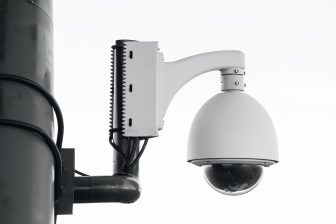
Number of drive-offs surges as petrol prices continue to peak
With petrol prices on the rise, service station operators should be extra vigilant for drive-offs. The number of unpayed fuel stops surged in recent weeks.
In the Netherlands, the police saw a 25% increase in unpaid fuel stops. In other countries like England it’s even worse. The British Oil Security Syndicate (BOSS) reported a 215% increase of drive-off and NMoP (no means of payment) incidents for the first week of March, compared with the first week of December 2021.
Operators should especially be vigilant during peak periods, the police advises. Make sure you, as a service station owner, retain accurate information about vehicles involved in driving away from a forecourt without paying for fuel. Same goes when it comes to motorists claiming to have no means of payment for fuel.
Not profitable
Many people seem to think that a fine for continuing to drive without paying is cheaper than a full tank of gasoline or diesel. Strictly speaking, this is true. With a large car, a full tank will easily cost around 150 euros, while the fine for fuel theft is 131 euros. If you get caught, however, you not only have to pay the fine, but also pay back the entire tank amount. Not to mention getting a criminal record.
Better cameras
In recent years, the CCTV systems in gas and service stations have improved tremendously. It is therefore unlikely many drivers will get away unpunished after a drive off.

As an operator, what can you do to predict and prevent a possible drive off?
Here are a few common warning signals:
- Driver still at the wheel, passenger filling up
- Open doors or open boot
- Number plates hidden or likely altered
- Lights of the vehicle still switched on
- Vehicle parked facing away from the kiosk towards an exit
- Customer trying to hide behind their own or another vehicle when filling up
- large container present that is filled up
Sometimes it’s also the other way around: a motorist with ill intentions who is nervous about filling up completely, as it might draw attention to his actions.
In many countries, the rise of fuel prices may soon be softened a bit because of tax cuts or other government measurements. But expectations are, fuel prices will remain high for the foreseeable future.
Also read:



